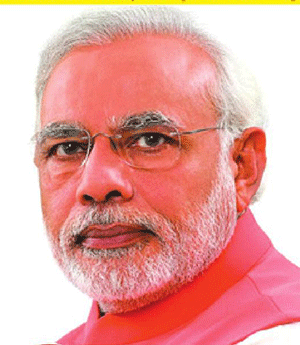 C kiran -
C kiran -
BEING the major country in South Asia, Indian political leadership has been exploiting the vulnerabilities of its neighbouring states as a state policy. This strategy has two objectives; to keep the regional states under pressure and to divert the attention of Indian masses away from real issues. Though, this Indian strategy has been working since its independence in 1947, but got impetus after it suffered humiliating defeat at the hands of China in 1962, Sino-Indian war. After this war, Indian leadership under Nehru deliberated new strategy for an indirect war at its neighbourhood causing destabilization. The hallmark of this strategy was, to explore the ethnic and religious factors of its neighbours and later exploit them, making use of its spying network.
As a reluctant neighbour, Pakistan was the first target of this Indian aggressive strategy in 1971. India continued this state policy with other regional countries like Nepal, Sri Lanka, Maldives and Bangladesh. With the passage of time other South Asian countries somehow accepted the Indian hegemony, but Pakistan has been putting-on more resistance and even brought a strategic balance in South Asia in 1998. With very less options of direct war, Indian spying network has started destabilizing Pakistan through promotion of ethnic and religious factors whereas, its state machinery and media has started a blame game and negative propaganda against Pakistan. Being the architect of terrorism itself, India has been blaming Pakistan for the cross border terrorism.
This blaming is primarily aimed at defaming Pakistan at global level and to win the sympathies of US and West, who waged a war against this menace after the event of 9/11. Under the pretext of such blame game, India has been refusing to talk to Pakistan on many unresolved issues, Kashmir being the most significant. Besides, attracting the US and western empathizes, Indian political leadership has been using this blame-game against Pakistan for attaining the political mileage within India. Indeed, Indian elections campaigns are conducted and won on the basis of enmity with Pakistan. The political party which blame and abuse Pakistan more gets the political mileage over others. The BJP’s success in 2014 elections was based on the same strategy. The more, BJP leadership blame Pakistan and create war hysteria, the more chances of success it will have in 2019-Lok Sabha elections. In her denial to negotiate with Pakistan, India even refused to participate in 19th SAARC Summit, scheduled to hold in Islamabad in November 2016.
Nepalese Foreign Minister Pradeep Kumar Gyawali said in a statement that, “If US President Trump and North Korea’s Kim can meet, then why not (leaders of) other countries.” Mr Pradeep Kumar Gyawali was referring to India-Pakistan deadlock over the negotiations and particularly about the repeated Indian denial of talking to Pakistan. He was on a canvassing mission in connection with the conduct of South Asian Association of Regional Cooperation (SAARC). 19th SAARC Summit was to be held in Islamabad in 2016, which had to be postponed, due to Indian refusal to participate. India also influenced Afghanistan, Bangladesh and Bhutan to decline participation in the 19th SAARC Summit, which clearly speaks of Indian strategy of creating fissures among the countries of South Asian region.
India has always tried to keep Nepal under political and economic pressure for keeping its hegemony over this landlocked Himalayan state. Nepal has been the only Hindu state, until it assumed the status of republic, sequel to the end of Kingdom in 2006. Nepalese Foreign Minister had a meeting with his Indian counterpart, Ms Sushma Swaraj in New Delhi on January 11, 2019. While talking to her, he tried to convince Indian External Affairs Minister that negotiations are the only way forward and sooner New Delhi understands this reality, it will be better for the South Asian region. SAARC Headquarters is located in Kathmandu, the capital city of Nepal.
Apart from Pakistan, India has been critical to Nepal’s closer ties with China. Nepal Foreign Minister also tried to convey a very strong and clear message to India that, no third country should be worrying about bilateral relationship between any two states. He said, “We have a wonderful relationship with India. I do not want to compare it with our ties with China. We have a good relationship with China and I do not want to compare it with India.” As a hegemonic state, India is used-to object bilateral relationship of any South Asian state with any other states. Pakistan and Nepal have maintained very closer ties and Pakistan supported this Himalayan state at most trying time of its history. Nepal has been critical to Indian hegemonic strategy and constraining other states.
In the blame-game and negatively coxswaining others, India is a leading country with no parallel at global level. Despite its huge geography and size of population, its leadership has been narrow-minded and cynical about its neighbouring states, especially Pakistan. Indeed, India considered the blame game and enmity with Pakistan as an essential part of its political survival, since many of its northern and north-eastern states are demanding independence from Indian Union since long. Internally, India is a country with worst human rights record against minorities like; Muslims, Christians and Sikhs. International community must understand the real motives of Indian blame game and exploitation of its neighbours. In fact, it is a ploy to divert the global attention from its state-sponsored inhuman activities and attaining the political mileage by its political


